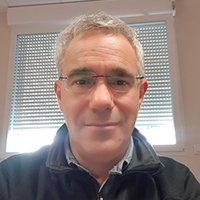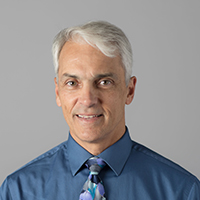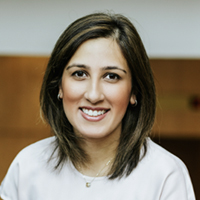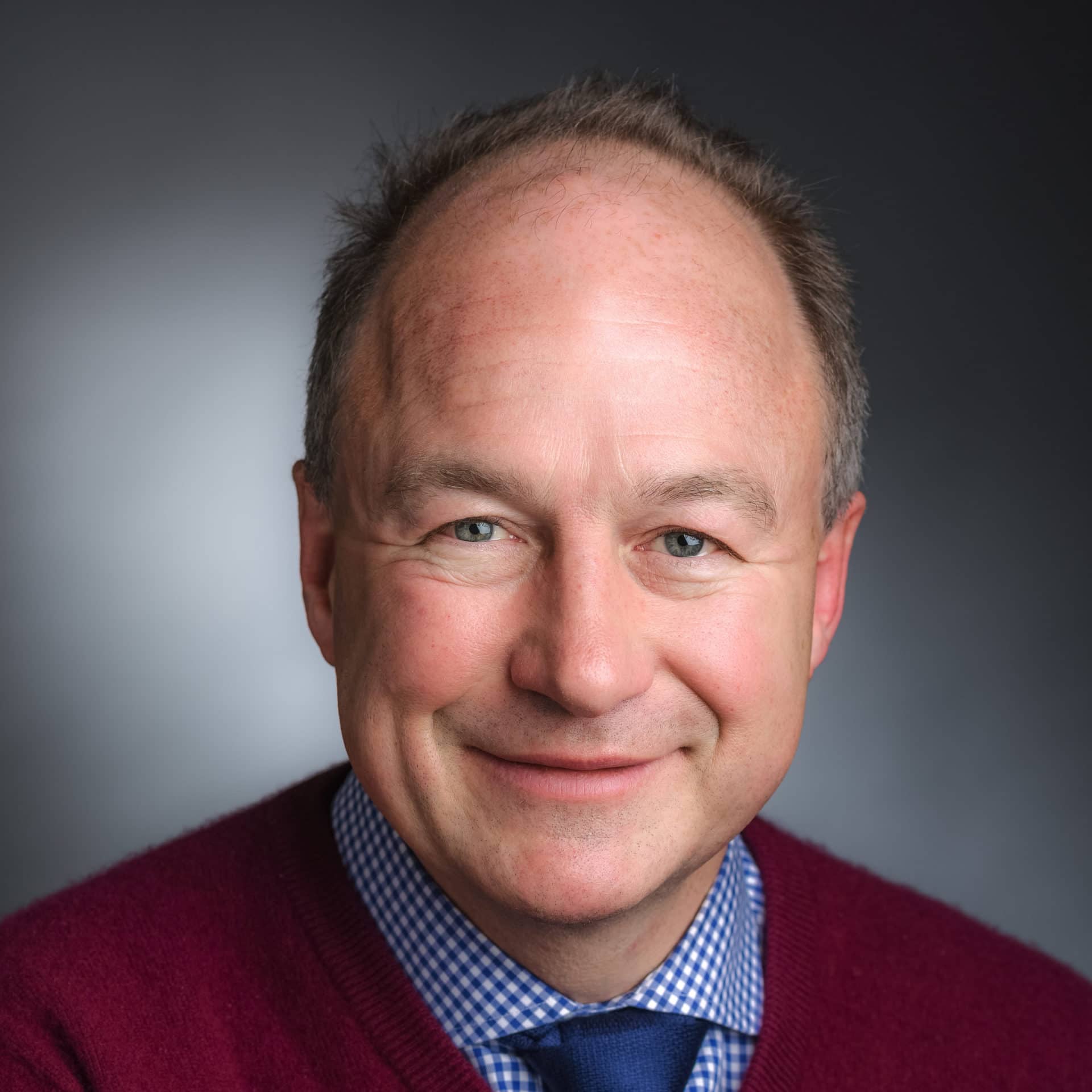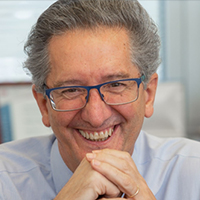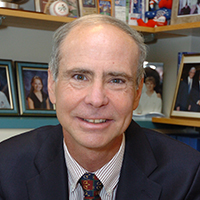
Kenneth C. Anderson
USA
Kenneth C. Anderson
Dr. Anderson is the Kraft Family Professor of Medicine at Harvard Medical School, as well as Director of the LeBow Institute for Myeloma Therapeutics and Jerome Lipper Multiple Myeloma Center at Dana-Farber Cancer Institute. After graduating from Johns Hopkins Medical School, he trained in internal medicine at Johns Hopkins Hospital, and then completed hematology, medical oncology, and tumor immunology training at the Dana-Farber Cancer Institute. He is a Doris Duke Distinguished Clinical Research Scientist and American Cancer Society Clinical Research Professor. Over the last four decades, he has developed laboratory and animal models of myeloma in its microenvironment which have allowed for both identification of novel targets and validation of novel targeted and immune therapies. He has then rapidly translated these studies to clinical trials culminating in FDA approval of novel targeted therapies which have markedly improved patient outcome. He has received the American Society of Hematology William Dameshek Prize, the American Association for Cancer Research Joseph H. Burchenal Award, the American Society of Clinical Oncology David A. Karnofsky Award, and the Harvard Medical School Warren Alpert Prize. He is a Fellow of AACR and ASCO, a member of the National Academy of Medicine as well as Royal College of Physicians and Pathologists, and past President of the International Myeloma Society and American Society of Hematology. He has also received the Robert A. Kyle Lifetime Achievement Award from the International Myeloma Foundation and the Waldenstrom Award at the International Myeloma Workshop.
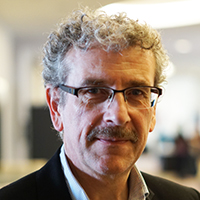
Bertrand Arnulf
France
Bertrand Arnulf
Birth date : 20 APR 1964
Professor of Clinical Immunology, University Paris VII & Immuno-Hématology department, Hôpital Saint Louis, Paris.
Head of the Immuno-hematology department of Saint Louis hospital dedicated to Monoclonal gammopathies and related disorders including Multiple Myeloma, Waldenströml Macroglobulinemia, Monoclonal gammopathies of Clinical significance and AL amyloidosis. Reference center for AL amyloidosis and other monoclonal gammopathy of clinical significance
Active member of IFM board. Coordinator Myeloma part of the DESCAR-T registry and the CAR-T program of IFM
Basic and translationnal research focused on novel immunotherapies in Multiple Myeloma and involved in main CAR T studies in developpment.
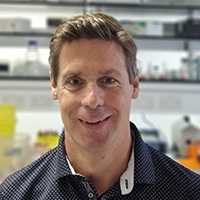
Holger Auner
Switzerland
Holger Auner
Holger Auner is Professor of Clinical and Molecular Haemato-oncology in the Centre for Haematology at Imperial College London. He received his MD from Karl-Franzens University Graz, Austria, where he also trained in Internal Medicine and Haematology-Oncology, and studied genetic instability in myeloid leukaemias in the laboratory of Heinz Sill. He then joined Niall Dillon’s group at the MRC Clinical Sciences Centre and obtained a PhD for work on plasma cell biology from Imperial College London. Subsequently, he was Stem Cell Transplant Co-ordinator at Hammersmith Hospital under Jane Apperley. In 2012, he was awarded a Cancer Research UK Clinician Scientist Fellowship to set up a research group in the Centre for Haematology at Imperial. Currently, he holds a CRUK Advanced Clinician Scientist Fellowship and is Head of Translational Research at Imperial’s newly established Hugh and Josseline Langmuir Centre for Myeloma Research. Dr Auner’s primary research interest is to better understand the molecular mechanisms that coordinate protein degradation pathways with cellular metabolism in multiple myeloma and other cancers. His laboratory also investigates how proteomic and metabolic homeostasis depend on tissue physical properties, using time-resolved omics approaches in a range of cross-disciplinary collaborations. He is an active member of the European Myeloma Network (EMN), principal investigator for Imperial College Healthcare NHS Trust for national and international trials, and Translational Research Lead of the UK Myeloma Research Alliance.
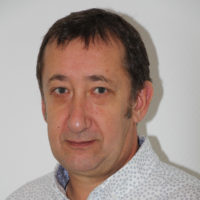
Hervé Avet-Loiseau
France
Hervé Avet-Loiseau
Professor Hervé Avet-Loiseau is Head of the Laboratory for Genomics in Myeloma in the University Cancer Center of Toulouse since September 2012. Before, he was head of the Hematology Laboratory of the University Hospital of Nantes, France, a position he has held since 2008. He received his medical degree with a specialization in Pediatric Hematology in 1990. After pursuing a postdoctoral fellowship in the laboratory of Dr. Joe Gray in San Francisco, he moved into the area of Biological Hematology in 1995 and subsequently specialized in cytogenetics. He received his PhD in 1998 and became Professor of Hematology in 2001. Professor Hervé Avet-Loiseau is highly involved in the Intergroupe Francophone du Myélome (IFM), current Chairman, where he leads all biological studies. Most of these studies are based on the analysis of genetic/genomic abnormalities observed in malignant plasma cells using different technologies, including Fluorescence In-Situ Hybridization (FISH), gene expression profiling, single nucleotide polymorphism (SNP) arrays, and Next Generation Sequencing (NGS).
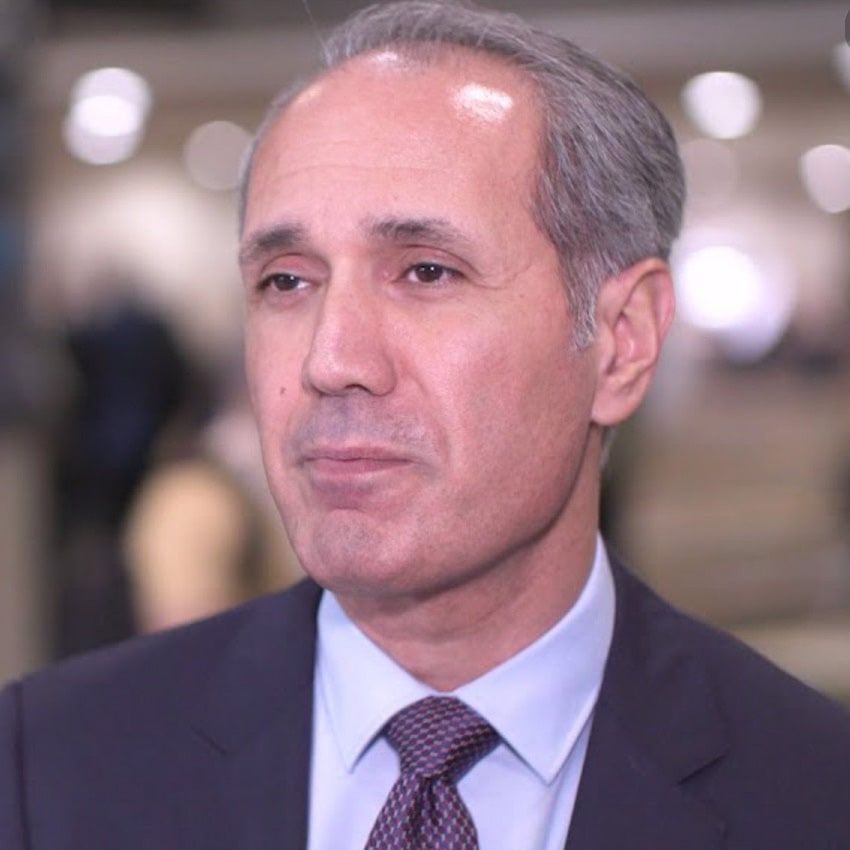
Nizar Bahlis
Canada
Nizar Bahlis
Dr Bahlis is an Associate Professor of Medicine at the University of Calgary in the division of Hematology and Bone Marrow Transplantation and a member of the Charbonneau Cancer Research Institute. Dr Bahlis received his medical degree in 1995 from St Joseph University – French Faculty of Medicine in Beirut. He then completed his internal Medicine residency at the State University of New York in Syracuse followed by a Hematology-Oncology fellowship at the University of Miami, Florida. Dr Bahlis also completed a postdoctoral fellowship in cancer biology at the University of Miami under the mentorship of Dr Lawrence Boise. Dr Bahlis’ clinical and laboratory research focus on the study of plasma cell dyscrasia, with particular interest in multiple myeloma genomics and the development of novel therapeutics. He has received several awards and research funding from numerous agencies including the ASCO young investigator award, the Multiple Myeloma Research Foundation, The Leukemia and Lymphoma Society of Canada, Alberta Cancer Foundation, the National Institute of Health, the Terry Fox Foundations and the Canadian Institute of Health and Research (CIHR). His research work was published in many peer-reviewed journals including New England Journal of Medicine, Blood, Leukemia, Molecular Cancer Research and Clinical Cancer Research. Dr Bahlis also served on the editorial board for the journal Blood and on the review panels of several national and international funding agencies. He is a member of the American Society of Hematology (ASH), the ASH plasma cell dyscrasia scientific panel and the international myeloma society (IMS) education panel.
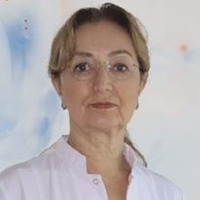
Meral Beksac
Turkey
Meral Beksac
Meral Beksaç MD is a Professor and the Head of the Department of Hematology at Ankara University, Turkey. She has been actively involved in investigator initiated or pharma sponsored Phase II-III clinical trials since 1992, initially within the auspices of EORTC-LCG and later in collaboration with European Myeloma Network. Apart from the pre-clinical studies and clinical trials, her field of research is focused on immune-genetics of plasma cell disorders and expansion of HSC or NK cells from cord blood. Dr Beksaç is an active member of Turkish Society of Hematology as well as international societies, including EHA, ASH, EBMT, ASTCT, IMS and IMF. She is currently the president of the ”Turkish Bone Marrow Transplantation Foundation” and the “Plasma Cell Disorders Subcommittee of the Turkish Society of Hematology”. She is also acting as the vice-chair of the “Balkan Myeloma Study Group” and also the Plasma Cell Disorders Subcommittee of EBMT-CMWP.
Dr Beksaç is also a member of the editorial board of scientific journals and has been editor of three books and authored more than 300 original papers in peer-reviewed journals with more than 20000 citations (google scholar H index:60 scopus: 45).
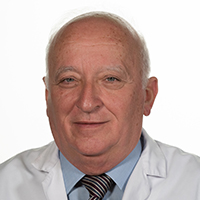
Joan Bladé
Spain
Joan Bladé
Joan Blade has been devoted for the last 40 years to clinical research in multiple myeloma. He has published over 500 scientific papers in international peer reviewed international journals and was honored with the Robert Kyle Lifetime Achievement Award.
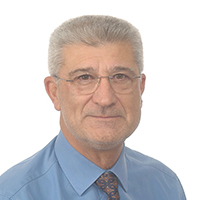
Mario Boccadoro
Italy
Mario Boccadoro
Dr. Mario Boccadoro is Emeritus Professor at the Department of Molecular Biotechnology and Health Sciences, University of Torino, Torino, Italy; Vice President and Executive Member of the Senior European Myeloma Network (EMN) Board; President of the Board of Directors of the Working Group of EMN Italy (EMN Trial Office); and Chairperson of the EMN Italy ONLUS non-profit foundation. He was, until November 20, 2020, head of the Divisions of Hematology and Oncology at the University of Torino / AOU Città della Salute e della Scienza di Torino (Italy). He has been contributing to the design and conduct of clinical trials focusing on multiple myeloma and transplantation (autologous and allogeneic). His work spans a wide subject area within multiple myeloma, including the effect of high doses versus conventional therapy, prognostic factors, immunotherapy, molecular alterations, minimal residual disease, mini-allograft, and clinical protocols with the use of new drugs. He is the founder of the Italian Myeloma Study Group and member of ASH, ASCO, IMS, EHA, and SIE. He has authored or co-authored around 520 publications in peer-reviewed journals (h-index 88). He was the recipient of the Sixth Annual Robert A. Kyle Lifetime Achievement Award in 2008.
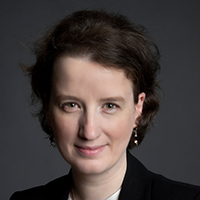
Eileen Boyle
USA
Eileen Boyle
Dr Eileen M Boyle is a physician-scientist currently acting as postdoctoral fellow at NYU Langone’s Myeloma Research Program.
After completing her hematology training in Lille University, France, she served as an instructor in Lille University Hospital under the supervision of Prof Thierry Facon. During her training she served as clinical Research Fellow at the Royal Marsden and ICR, London UK, and she obtained her MSc in human genetics 2014. She continued her research in myeloma genetics at the University of Arkansas for Medical Science (UAMS, AR, USA) and Lyon University (Lyon, France) under the supervision of Prof Brian Walker and was awarded a PhD in Molecular genetics in 2020 before starting a postdoc at NYU Grossman’s school of medicine in Prof Gareth Morgan’s laboratory.
Her clinical activity has focused on the management of plasma cell disorders including precursor conditions, and light-chain amyloidosis in both the Lille University Hospital, France and the Royal Marsden, London, United-Kingdom. In addition to her clinical activities, she has dedicated several years to the study of the genetics of plasma cell disorders with a particular focus on the mechanisms of disease progression and high-risk disease.
She has co-authored several papers and acts as a reviewer for multiple journals and funding organizations.
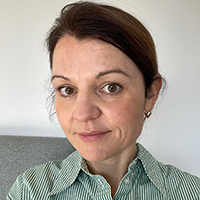
Ceri Bygrave
UK
Ceri Bygrave
Dr Ceri Bygrave is a consultant haematologist and clinical lead for myeloma at the University Hospital of Wales, Cardiff. She is a graduate of the University of Wales College of Medicine and undertook haematology training locally and MPhil research on tyrosine kinase inhibition in acute leukemia under the supervision of Professor Alan Burnett. Ceri is now Chair of the UK Myeloma Society and an active member of the UKMRA. She has represented patients and the UKMS at NICE technology appraisals and in negotiations with government officials in Wales around access to therapies and cancer trials and the challenges of overcoming barriers pertaining to equality, diversity and inclusivity. Ceri established and is of chair the South Wales Regional MDT in myeloma and is UHW director of Haematology Research and Development. She is a member of many trial management groups for national UK trials and has a particular interest in early relapse and measurement of multi-modal MRD. Ceri is also passionate about the requirement for improved real world data capture and has established the Wales National Myeloma Dashboard and has enabled UHW to partner in the pan-European Honeur programme.
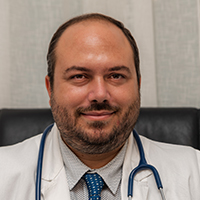
Claudio Cerchione
Italy
Claudio Cerchione
Dr Claudio Cerchione graduated in medicine with honours from the Medical School at the University Federico II of Naples, Italy (July 2008), with a final thesis in Hematology.
During his Fellowship and PhD studies, Dr. Cerchione studied in detail Hematological malignancies, and his main research topics are Acute Leukemias and Multiple Myeloma.
He started his collaboration in Hematology Department, AOU Federico II, Naples, Italy, in 2006, and there he completed with honours his Fellowship in July 2014 and his PhD program in May 2017.
Since 2018, he works in Hematology Unit of Istituto Scientifico Romagnolo per lo Studio e la Cura dei Tumori (IRST) IRCCS, where he is Head of Multiple Myeloma Research Group and Principal Investigator of many clinical trials company sponsored and non-company sponsored.
He has spent international research experiences in Friedrich-Wilhelms Universität, Bonn, Germany, in Universitade de Coimbra, Portugal, collaborating in their clinical and research projects, and in MD Anderson Cancer Center, Houston, USA, where he has been nominated International Ambassdor of SOHO (Society of Hematologic Oncology).
He is member of the editorial boards of many scientific journals, or Reviewer for several highly cited international journals and member of several international societies and President of Society of Hematologic Oncology Italy (SOHO Italy).
In 2018/2019 he was nominated by EHA as one of the winners of Clinical Research Training in Hematology.
He is Editor of several journals and author of more than one hundred of papers in peer-reviewed international journals.
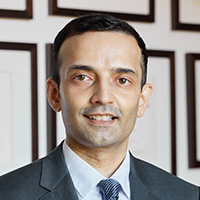
Ajai Chari
USA
Ajai Chari
Dr. Chari’s research interests include the development of novel chemotherapy regimens, including Phase 1 and 2 studies. He is principal investigator (PI) of several investigator-initiated trials and serves as the national and international PI of several industry-sponsored studies. As the Director of Clinical Research in the Multiple Myeloma Program at Mt Sinai New York, he oversaw the growth of a program renowned nationally for both high volume patient accruals and rigorous quality assurance. The program played a pivotal role in the approval of each of the most recent therapies to be approved by the U.S. Food and Drug Administration for the treatment of multiple myeloma.
Dr. Chari received undergraduate degree from Stanford University and his medical degree from the David Geffen School of Medicine at University of California – Los Angeles. He completed his residency in internal medicine at Columbia University Medical Center and a fellowship in hematology and oncology at the University of California – San Francisco. As of this fall, Dr Chari will be returning to UCSF as the Director or Multiple Myeloma at the University of California San Francisco.
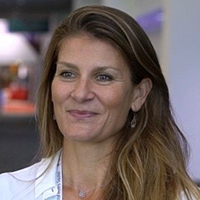
Jill Corre
France
Jill Corre
Jill Corre, PharmD, PhD, is Professor in the Hematology Laboratory of the University Toulouse Hospital. She is co-head of the Unit for Genomics in Myeloma with Professor Hervé Avet-Loiseau in the University Cancer Institute of Toulouse Oncopole. Her research activity takes place in the team Genomic and Immunology of Myeloma, from the Cancer Research Center of Toulouse. She is currently a member of the Intergroupe Francophone du Myélome and of the International Myeloma Society.
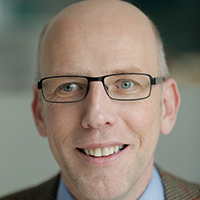
Michel Delforge
France
Michel Delforge
Michel Delforge, MD, PhD, is a professor of medicine in the Department of Haematology at the University of Leuven, in Leuven, Belgium. He studied medicine at the University of Leuven, where he obtained a doctoral degree in biomedical sciences. He continued his medical training as a research fellow at the University of Minnesota, Minneapolis, MN, USA, and subsequently undertook a clinical fellowship at the University of Leuven, with specific interests in myelodysplastic syndromes and plasma cell diseases.
Professor Delforge is currently chairman of the KU Leuven Cancer Institute and Clinical Head of the Department of Haematology at the University Hospital Leuven, where he directs the plasma cell dyscrasia unit. He is a senior clinical investigator and holds the Fraiture chair in hematology. His research focus is on prevention and management of drug related adverse events and mechanisms of drug resistance in multiple myeloma.
Professor Delforge is chairman of the Myeloma Committee of the Belgian Hematology Society and a member of the Intergroupe Francophone du Myélome, HOVON (Haemato-Oncology Foundation for Adults in the Netherlands), and the International Myeloma Working Group. He has authored or co-authored more than 100 articles in peer-reviewed medical journals and several book chapters in the field of haematology.
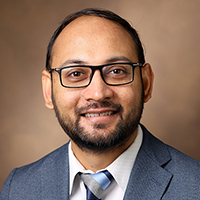
Bhagirathbhai Dholaria
USA
Bhagirathbhai Dholaria
Dr. Dholaria is currently an associate professor in the Department of Hematology-Oncology at Vanderbilt University Medical Center, Nashville, TN. His areas of specialization and primary research focus are lymphoid neoplasms, plasma cell malignancies, adoptive cellular therapies, and stem cell transplantation. He has conducted studies investigating the outcomes of patients with non- Hodgkin lymphoma and acute leukemia undergoing chimeric antigen receptor T-cell (CAR-T) therapies. He is involved in translational research investigating the biomarkers of CAR T-cell therapy-associated toxicities. He has also conducted several observational studies utilizing cancer registries to study transplant outcomes of acute leukemia patients and presented his findings in national meetings. His team’s work on stem cell transplantation has been published in multiple manuscripts. His current research efforts are focused on testing novel agents to address relapse after CAR T therapy in lymphoma and multiple myeloma.
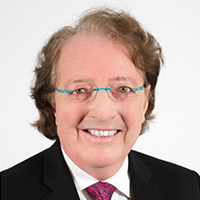
Brian Durie
USA
Brian Durie
Dr. Brian G.M. Durie is Co-founder and Chief Scientific Officer of the International Myeloma Foundation. He is also Co-Chairman of the International Myeloma Working Group and the Black Swan Research Initiative® (BSRI).
Dr. Durie is a Hematologist/Oncologist specializing in multiple myeloma and related disorders at the Cedars-Sinai Medical Center in Los Angeles. He was former Medical Director of Myeloma Research for the Academic Myeloma Consortium and co-chairman of the myeloma committee for the SWOG Cancer Research Network. Previously, he was a professor at the University of Arizona, College of Medicine, and the Charing Cross and Westminster School of Medicine at the University of London.
Dr. Durie is known for his notable research on multiple myeloma and blood disorders, most especially for developing the Durie-Salmon Staging System which continues to be used worldwide for clinically staging myeloma.
One of his key BSRI® projects, iStopMM (Iceland Screens, Treats, or Prevents Multiple Myeloma) is the first large-scale screening study in the field of myeloma aimed at preventing myeloma before it develops. His other key projects include the i2TEAMM (International Independent Team for Endpoint Approval of Myeloma MRD) Initiative and the BSRI® ASCENT Cure Trial.
Dr. Durie has received numerous accolades for his outstanding contributions in the field of myeloma: an Honorary Doctor of Medicine award from the Vrije Universteit Brussel in 2019, the Waldenström’s Award in 2009, and the Robert A. Kyle Lifetime Achievement Award in 2006. He is also a Leukemia Society of America Scholar and a U.S. Hematologic Research Foundation Annual Awardee.
He has written over 700 research papers, 16 book chapters, and 5 books. He also holds an international patent for scintillation autoradiography.
Dr. Durie is actively involved in global congress events in Europe, which include the annual Heidelberg Myeloma Workshop and annual conferences hosted by the Eurasian Hematology-Oncology Group.
He has produced over 200 videos for his weekly series, “Ask Dr. Durie,” where he addresses patient questions about multiple myeloma and provides information on the latest developments in myeloma treatments. Complementing the video series is his weekly blog, where he also features highlights of annual events including the ASH Educational Program, IMWG Summit, Asian Myeloma Network (AMN) Summit, Global Myeloma Action Network (GMAN) Summit, and the Support Group Leaders Summit.
Dr. Durie hosts IMF Patient & Family Webinars and Regional Community Workshops to provide up-to-date and direct information from leading myeloma experts to myeloma patients and their families.
Born in Scotland, Dr. Durie received his medical degree from the University of Edinburgh Medical School. He completed residencies and fellowships at Mayo Clinic and the University of Minnesota. He is board certified by the American Board of Internal Medicine with subspecialties in both medical oncology and hematology.
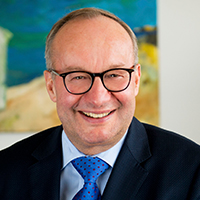
Hermann Einsele
Germany
Hermann Einsele
Hermann Einsele, MD, FRCP, is Full Professor of Internal Medicine and has been Director of the Department of Internal Medicine II of the University Hospital Würzburg, Germany, since 2004.
Following his medical training at the Universities of Tübingen, Manchester, and London, Hermann Einsele became a research fellow in the Department of Haematology, Oncology, Rheumatology, and Immunology at the University of Tübingen, Germany. Hermann Einsele was board certified in Internal Medicine in 1991 and in Haematology/Oncology in 1996. In 1999, he was promoted as an Associate Professor. He was Visiting Professor at the City of Hope Hospital, Duarte, CA and the Fred Hutchinson Cancer Research Center Seattle, USA.
From 2011-2015 and since 2022 Hermann Einsele was Vice Dean of the Faculty of Medicine of the University of Würzburg, from 2021-2021 he was Advisory board member in the funding program “Zwanzig20 – Partnership for Innovation” of the Federal Ministry of Education and Research (BMBF) and from 2015 -2021 Vice President of the University of Würzburg. Since 2018, he is the chair of the scientific working group on immunotherapy for hematological malignancies of the European Hematology Association. Since 2022, Prof. Einsele is Executive Chairman of the German Society of Hematology and Oncology.
In 2003, he received the van Bekkum Award, the highest Annual European award for research in the field of stem cell transplantation. In 2011, he was elected as an Honorary Fellow of the Royal College of Pathologists (London) and in 2012 Nobel Lecturer Stem Cell Biology/ Transplantation, Nobel Forum Karolinska Institute. Since 2014, he was elected as a member of the Academy of Sciences and Literature, Mainz and 2017/2018/2019/2020/2021/2022 as an ISI “Highly Cited Researcher” in the category Clinical Medicine. In 2022 Prof. Einsele received the Erasmus Hematology Award 2022 from the Erasmus University Medical Center, Rotterdam, Netherlands.
Hermann Einsele is expert in the field of multiple myeloma with focus on CAR T cells, bi-specific antibodies, adoptive immunotherapy and stem cell transplantation.
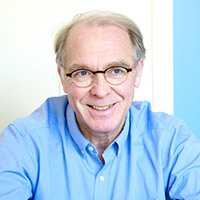
Thierry Facon
France
Thierry Facon
Thierry Facon, MD, is Professor of Haematology in the Department of Haematology, Lille University Hospital, Lille, France, a position he has held since 2000. Professor Facon received his MD at Lille University School of Medicine in 1987 and became Assistant Professor of Haematology at Lille University Hospital in 1989.
Professor Facon was President of the Intergroupe Francophone du Myélome (IFM) between 2003 and 2006, Vice-President of the French Society of Haematology between 2005 and 2013. Professor Facon has presented at several international congresses, including the Plenary session at the annual meeting of the American Society of Clinical Oncology (ASCO) in 2006, the Plenary sessions at the annual meeting of the American Society of Hematology (ASH) in 2013 and 2018 the Educational Session of European Haematology Association (EHA) in 2008 and 2014, and the Educational session of ASH in 2015 and 2018. He co-organized the XIIIth International Myeloma Workshop (IMW) in Paris in 2011, and is a member of the American Society of Hematology (ASH), the International Myeloma Working Group (IMWG), the International Myeloma Foundation (IMF). He is a founder member and administrator of the Fondation Française pour la Recherche contre le Myélome et les Gammapathies (FFRMG) under the aegis of the Fondation de France whose main objective is to enable scientists and students to carry out research programs in host laboratories in France or abroad.
He has presented the “Pierre Stryckmans Memorial Lecture” of the Belgian Hematological Society in 2015 and received the Joseph Michaeli Award from Weill Cornell Medicine, New York USA for his contributions to the treatment of Myeloma Research in 2017 and the International Myeloma Foundation Robert A. Kyle Life Time Achievement Award in 2020. He is an Honorary Professor at the Institute of Hematology & Blood Diseases Hospital, Chinese Academy of Medical Sciences, Peking Union Medical College, China since 2015. Professor Facon is author and co-author of a number of articles and has published his work in various prestigious international journals including, as first or senior author, The Lancet and The New England Journal of Medicine.
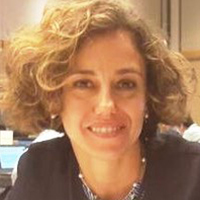
Francesca Gay
Italy
Francesca Gay
Dr. Francesca Gay is Associate Professor in the University of Torino, Department of Molecular Biotechnology and Health Sciences, and works as hematologist at the Division of Hematology 1, and SSD Clinical trials in onco-ematology and multiple myeloma, Azienda Ospedaliero-Universitaria Città della Salute e della Scienza di Torino, Italy. She completed her medical degree in 2004 and her fellowship in hematology in 2008 at the University of Torino, Italy. She obtained her PhD in Medicine and Experimental Therapy in 2014.
She is a member of ASH, EHA, ESMO, EMN, IMS, and SIE. She is a member of the EHA Steering Commettee Program and has previously been a member of the EHA Steering Commettee Program Advisory Board, of the ESMO Clinical Practice Guidelines committee, of the EMN Young Board, of the IMS Board and the Educational Commettee and Social Media Commette of IMS, of the GIMEMA working Party on Immutherapy. She is involved in the design, development and coordination of phase I/II/III clinical trials for the treatment of multiple myeloma in tight collaboration with the European Myeloma Network, and principal investigator in multicenter trials. She worked on several international multicenter projects and data analyses.
Dr. Gay’s main research focuses on the diagnosis and the clinical and experimental treatment of patients with multiple myeloma and associated disorders, particularly of newly diagnosed patients eligible for autologous stem-cell transplantation. Her interests also include the use of new biological molecules, monoclonal antibodies, immunotherapeutic agents, CAR T Cells and stem-cell transplantation techniques.
She is author and co-author of more than 100 papers published in peer reviewed journals, as well as reviewer for several journals including Lancet, Leukemia, Lancet Oncology, Lancet Hematology, Blood Cancer Journal and Haematologica. In 2019 she has been awarded the Bart Barlogie Young Investigator Award by the International Myeloma Society and in 2022 of the CoMy woman in multiple myeloma achievement award.
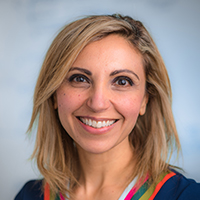
Irene Ghobrial
USA
Irene Ghobrial
Dr. Ghobrial completed her M.D. at Cairo University and a residency in Internal Medicine at Wayne State University in Detroit, Michigan, then trained as a Hematology/Oncology Fellow at the Mayo Clinic in Rochester, Minnesota. She is currently a Professor of Medicine and the Lavine Family Chair for Preventative Cancer Therapies at Dana-Farber Cancer Institute, Harvard Medical School. She is the Director of Translational Research in the Department of Multiple Myeloma, Director of the Center for Prevention of Progression diseases (CPOP), and co-leader of the Lymphoma and Myeloma Program at Dana-Farber. She is the co-leader of the Stand Up to Cancer Myeloma Dream Team—the first Dream Team award for blood cancer, the recipient of the Claire W. and Richard P. Morse Research Award, the Jan Gosta Waldenstrom Award, and the William Dameshek Prize given annually by The American Society of Hematology (ASH) to an individual, younger than 50 who has made outstanding contributions in hematology.
Her research focuses on identifying and developing effective therapeutic interventions for precursor conditions of myeloma (Monoclonal Gammopathy of Undetermined Significance and Smoldering Multiple Myeloma, MGUS and SMM). The focus of her research is to identify novel biomarkers of disease progression and develop potentially curative therapies in the pre-malignant phase that exploit the immune microenvironment in the bone marrow. She developed a large, patient-empowering observational study for these precursor conditions, the PCROWD study. She is also the PI of the first screening study for multiple myeloma in the US, the PROMISE study, which is currently screening 30,000 high-risk individuals, including those of African descent or with a family history of blood cancer.
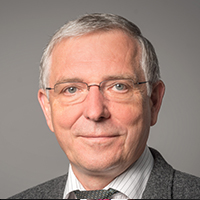
Hartmut Goldschmidt
Germany
Hartmut Goldschmidt
After his graduation from medical school and his licensing as a practicing physician in 1982, he received the conferment of doctorate in 1984 at the Humboldt-University in Berlin. In 1988 he was recognized as consultant for internal medicine and worked as assistant physician at the University Medical Center for the Internal Medicine, Charité Hospital in Berlin. In 1991 he was recognized in the field of “hematology and internal oncology”. In 1997 he qualified as a professor at the Ruprecht-Karls-University in Heidelberg and was subsequently employed there from 1999 through 2005 as leading senior physician. In June of 2018 he accepted the W3 endowed professorship “Translational Myeloma Research” at the University Clinic in Heidelberg. In February 2018 he was awarded the German Cancer Award for Clinical Cancer Research.
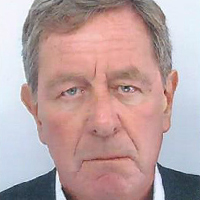
Jean-Luc Harousseau
France
Jean-Luc Harousseau
Jean-Luc Harousseau is Professor of Hematology at the University of Nantes in France. He headed the Department of Clinical Haematology in Nantes University Hospital for 24 years and was Director of the Cancer Center René Gauducheau in Nantes from October 2008 to January 2011. In 2011 he founded the Institut de Cancérologie de l’Ouest (Cancer Centers of Nantes and Angers). He has been Chairman of the French National Authority for Health (HAS) from February 2011 to January 2016 and Chair of its Economic and Public Health Evaluation Committee from February 2014 to January 2016. He is currently Medical Director of Research at Institut de Cancérologie de l’Ouest Nantes-Angers
He was a founding member of the Intergroupe Français du Myélome and President of this internationally renowned cooperative group from June 2009 to January 2011.
His major research interest has been Multiple Myeloma and he received the 2005 Waldenström Award, the 2009 Robert Kyle Award and the HJ Khoury IACH award for his scientific contribution in the field of Multiple Myeloma. Professor Harousseau has contributed to more than 550 peer-reviewed publications.
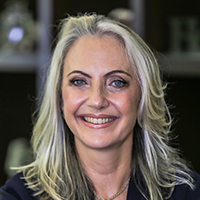
Vania Hungria
Brazil
Vania Hungria
Vania Tietsche de Moraes Hungria, MD, PhD,
Associate Professor of Hematology and Oncology Santa Casa Medical School and
Medical Director of the São Germano Clinic in São Paulo, Brazil.
Since the initiation of her medical career, she has focused on plasma cell disorders, mainly multiple myeloma, has conducted national clinical trials, has published on these topics and has participated in multicenter international clinical studies.
Dr Hungria has served during the last years at the International Myeloma Society in the membership subcommittee.
As a Co-founder and Chair of the International Myeloma Foundation Latin America Scientific Advisory Board, she has contributed to the education of health professionals and patients.
Dr. Hungria is one of the Directors of the Brazilian Association of Hematology, Hemotherapy and Cell Therapy and also the President of the Multiple Myeloma Committee in this association.
Additionally, she is a Co-founder and President of the Brazilian Multiple Myeloma Group (GBRAM).
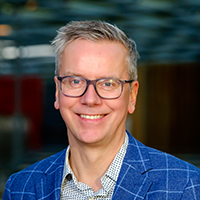
Sigurdur Kristinsson
Iceland
Sigurdur Kristinsson
Dr. Sigurdur Yngvi Kristinsson is a professor of Hematology at the University of Iceland. He serves as the principal investigator for the Iceland Screens, Treats, or Prevents Multiple Myeloma (iStopMM®) study, a population-based MGUS and multiple myeloma screening study. The iStopMM study is the largest myeloma study in the world in which over 80,000 individuals provided their written informed consent to participate.
In 2009, Dr. Kristinsson PhD thesis on risk factors and prognosis in patients with monoclonal gammopathies (Karolinska Institute) was named the best thesis in hematology in Sweden. He has written more than 140 research papers on hematological diseases. He has led several large population-based myeloma studies in collaboration with major research centers in Sweden, US and Iceland and is a frequent speaker at international hematology conferences, including the American Society of Hematology Annual Meeting and the European Hematology Association Congress. His prior research has shed light on several risk factors (such as family history and prior autoimmune disease), complications and outcomes of patients with MM and its precursor (such as thrombosis, fractures, bone disease, infections, and secondary malignancies).
Dr. Kristinsson has obtained a number of grants for research on plasma cell disease, for example from Marie-Curie reintegration grant (EU), ERC starting grant, ERC consolidator grant, Black Swan Research Initiative, the Swedish Cancer Society, the Karolinska Institutet Foundations, Swedish Hematology Association, and the Icelandic Centre for Research (RANNIS). He is also the first recipient of the Brian Durie Outstanding Achievement Award, issued by the IMWG (International Myeloma Working Group) in 2018.
Dr. Kristinsson current research group includes 5 PhD-students, a lab with 5 biologists, three postdocs, 6 research nurses, two statistician, one data manager, a project manager, a grant writer, and three support staff.
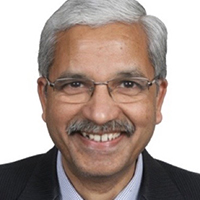
Lalit Kumar
India
Lalit Kumar
Dr Lalit Kumar – a Professor of Medical Oncology is currently the Chairperson of Oncology and BMT at the Artemis Hospitals, Gurugram, India. Earlier he was associated with the prestigious All India Institute of Medical Sciences, New Delhi where he served as chief of the cancer centre and headed the National Cancer Institute- a national facility for advanced research and treatment of cancer.
Kumar graduated in medicine from S.N Medical College, Agra, subsequently, pursued his higher studies in cancer research at Adyar Cancer Institute, Chennai, India and followed it up with a post-doctoral fellowship in bone marrow transplantation under Prof John Goldman at the Royal Postgraduate Medical School and Hammersmith Hospital, London. His major area of research include- stem cell transplantation, and multiple myeloma.
Lalit Kumar can be contacted at the : Department of Medical Oncology, Room 199, Artemis Hospital, Gurugram 9811446828 , E Mail : [email protected]
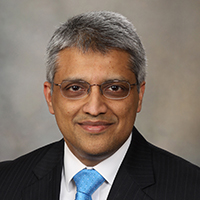
Shaji Kumar
USA
Shaji K. Kumar
Shaji K. Kumar, MD, is Consultant in the Division of Hematology and Mark and Judy Mullins Professor of Hematological Malignancies at Mayo Clinic in Rochester, Minnesota. He is the Chair of the Myeloma, Amyloidosis and Dysproteinemia Disease Group at Mayo Clinic and Research Chair for the Depratment of Medicine. Dr. Kumar received his medical degree from the All India Institute of Medical Sciences in New Delhi, India. His postdoctoral training included a residency in Internal Medicine from the All India Institute of Medical Sciences, followed by an Internal Medicine residency and a hematology/oncology fellowship at the Mayo Graduate School of Medicine in Rochester, Minnesota. Dr. Kumar serves as Co-Chair of the NCI Myeloma Steering Committee and as Chair of the NCCN Multiple Myeloma Guidelines Panel.
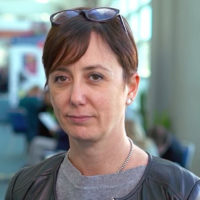
Alessandra Larocca
Italy
Alessandra Larocca
Dr. Alessandra Larocca, is associate professor of Hematology at the University of Torino, Azienda Ospedaliero-Universitaria Città della Salute e della Scienza di Torino, Italy. She studied Medicine at the University of Milano (1996-2001) and completed her residency in Hematology at the same institution (2001-2005). In 2014, she obtained her PhD in Pathology and Experimental Oncology at the University of Torino.
She is involved in the design, development, and coordination of phase I/II/III clinical trials for the treatment of multiple myeloma in tight collaboration with the European Myeloma Network (EMN, EMN Italy Foundation) and the Gruppo Italiano Malattie Ematologiche dell’Adulto (GIMEMA). She is currently local principal investigator in several multi-center clinical trials.
Dr. Larocca’s main research focuses on the diagnosis and the clinical and experimental treatment of patients with multiple myeloma and associated disorders, particularly of elderly and frail patients. Her interests also include the use of new biological molecules, monoclonal antibodies, immunotherapeutic agents, CAR T Cells and stem-cell transplantation techniques.
She is a member of EMN, EHA, and ASH. She is author and co-author of several papers published in peer reviewed journals.
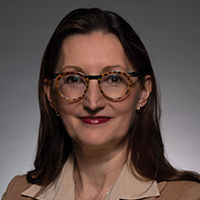
Suzanne Lentzsch
USA
Suzanne Lentzsch
Dr. Lentzsch is a Professor of Medicine and the Director of the Multiple Myeloma and Amyloidosis Service at the Columbia University Medical Center, New York. Her translational research identifies novel targets for treating MM, MM bone disease, and AL amyloidosis. In a series of multicenter clinical trials, she established bendamustine as a new treatment for relapsed amyloidosis. In an FDA-funded, first-in-human phase 1 trial, she studied the monoclonal antibody 11-1F4 (Cael-101) that targets amyloid fibrils. Based on her work Caelum Biosciences was founded, and Cael-101 is currently being tested in a phase 3 trial.
Dr. Lentzsch is the Co-Chair of the NCI Myeloma Steering Committee, a member of the ASH Scientific Committee for Plasma Cell Neoplasia, the Educational and Steering Committee for the Society of Hematology and Oncology (SOHO), and the SWOG Myeloma Working Group. She co-chairs the Career Development Committee of the International Myeloma Society (IMS). She is Associate Editor for JCO and on the Editorial Board for Blood Cancer Discoveries.
Dr. Lentzsch’s translational research received grant support from the NCI, FDA, Pennsylvania Department of Health, Leukemia and Lymphoma Society, Multiple Myeloma Research Foundation, Cancer Research Institute, Emerson Collect Fund, and International Myeloma Society. Dr. Lentzsch has published over 140 original articles, editorials, and chapters, many as the lead or senior author, in high-impact journals such as JCI, JCO, Blood, Cancer Research, and Leukemia.

Lisa Leypoldt
Germany
Lisa Leypoldt
Dr. Lisa Leypoldt, MD, is a clinician scientist specializing in hematology/oncology and internal medicine at the Department of Oncology, Hematology and Bone Marrow Transplantation with Department of Pneumology, University Medical Center Hamburg-Eppendorf, Hamburg, Germany, and a postdoctoral research fellow at Dana Farber Cancer Institute, Harvard Medical School, in Boston, MA, USA.
Dr. Leypoldt received her medical degree from University of Hamburg after having been trained in Hamburg, Münster (Germany), and Salt Lake City, Utah, USA. She pursues a special interest in multiple myeloma and related plasma cell dyscrasias in clinical routine and clinical research at University Medical Center Hamburg-Eppendorf, and is co-principal investigator in academic investigator-initiated clinical trials including the GMMG-CONCEPT trial for high-risk myeloma. In 2022, Dr. Leypoldt was granted a fellowship by the German Cancer Aid (Mildred-Scheel-Postdoctoral Scholarship) and started her postdoctoral research fellowship in the Medical Oncology laboratory of Constantine Mitsiades at Dana Farber Cancer Institute/Harvard Medical School in Boston, MA, USA where she is working on elucidating mechanisms of resistance of multiple myeloma. Dr. Leypoldt publishes research articles in scientific journals and was awarded several prizes.
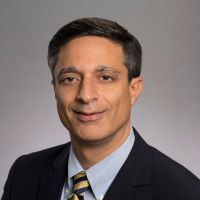
Sagar Lonial
USA
Sagar Lonial
Dr. Sagar Lonial earned his medical degree from the University of Louisville School of Medicine. He completed his internship and residency at Baylor College of Medicine in Houston, Texas, followed by a fellowship in hematology and oncology at Emory University School of Medicine in Atlanta, Georgia. His previous laboratory work has focused on evaluating the impact of purified dendritic cell subsets on the nature of immune responses against antigen, and he has completed several trials evaluating the impact of cytokines on dendritic cell content and post-transplant immune recovery. More recently, Dr. Lonial has focused on combinations of novel agents as therapy for myeloma.
He serves as Vice Chair of the Myeloma Committee in the Eastern Cooperative Oncology Group and as Myeloma editor for Clinical Lymphoma, Myeloma and Leukemia. He has received the Celgene Young Investigator Award , Indo American Cancer Association (IACA) Life Time Achievement Award, the COMY Multiple Myeloma Excellence Award for Clinical Science, and the Giants of Cancer Care inductee, and currently holds the Anne and Bernard Gray Family Chair in Cancer.
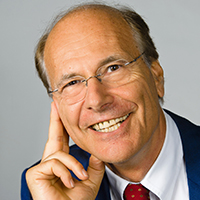
Heinz Ludwig
Austria
Heinz Ludwig
Dr. Heinz Ludwig is Professor of internal medicine and hematology and medical oncology and chair of the Wilhelminen Cancer Research Institute at the Department of Medicine I, Centre for Oncology and Haematology, Clinic Ottakring, Vienna, Austria. Professor Ludwig’s research interests focus on hematology and medical oncology and in particular on multiple myeloma and related disorders. Another major research area relates to the pathophysiology and treatment of cancer-associated anemia. Professor Ludwig has a strong interest in improving the quality of cancer care by promoting medical training and research, empowering patients, improving patient information and alerting society to patients’ needs.
Professor Ludwig has published a large number of scientific manuscripts in prestigious medical journals and serves as peer reviewer of several international journals. Professor Ludwig has chaired and/or organized many scientific meetings and runs the European Multiple Myeloma Academy (EMMA)-Vienna meeting series. He has served as president of the European Society for Medical Oncology (ESMO), has been a member of the International board of ASCO and is the founder of the ESMO Foundation. Professor Ludwig is board member of the Inter- national Myeloma Foundation and the European Myeloma Network, as well as a member of the IMWG. In recognition of his influential work, he was the recipient of the Fifth Annual Robert A. Kyle Lifetime Achievement Award.
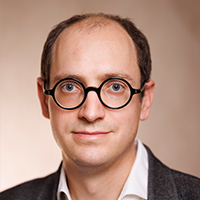
Florent Malard
France
Florent Malard
Florent Malard is Professor of Hematology at the Saint-Antoine Hospital and Sorbonne University. Florent Malard was a visiting investigator at the Memorial Sloan Kettering Cancer Center in New-York, USA from 2015-2016. He is now a researcher at the Saint-Antoine research Center in Paris and his research focus on Graft-versus-Host disease, microbiota and immunological complication of cellular therapies He is Secretary of the Cellular Therapy and Immunotherapy Working Party of The EBMT and Treasurer of the French Society for Bone Marrow Transplantation and Cellular Therapy. He is associate editor of Bone Marrow Transplantation. He has published more than 100 papers in peer-reviewed journals.
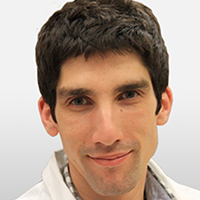
Salomon Manier
France
Salomon Manier
Salomon MANIER, MD, PhD, is a Professor of Hematology at Lille University Hospital in France. He studied medicine and completed his PhD at the University of Lille. During his 4 years research training at Dana-Farber Cancer Institute in Boston, he was appointed Instructor in Medicine at Harvard Medical School. He became an Instructor in the department of Hematological Malignancies at Lille University Hospital in 2017, an Associate Professor in 2019 and a Professor of Hematology in 2022. He is a Principal Investigator of a myeloma research team at INSERM UMR-S1277 and CNRS UMR9020.
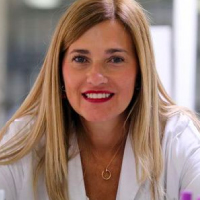
Maria-Victoria Mateos
Spain
Maria-Victoria Mateos
Dr. María-Victoria Mateos, MD, PhD, is Consultant Physician in the Haematology Department and Associate Professor of Medicine at the University of Salamanca, Spain. She is the director of the Myeloma Program and coordinates the Clinical Trials Unit in Salamanca’s University Hospital Haematology Department.
She serves as coordinator of GEM (Spanish Myeloma Group), with direct involvement in the design and development of clinical trials. She has coordinated many clinical trials especially in the smouldering myeloma setting and these trials have profoundly influenced current options for the management of these patient populations.
She has published over 250 original papers in international journals and her articles had received 29.452 citations (19268 since 2015) with a H index of 79 and 60 since 2015.
She is also a member of the IMWG (International MM Working Group), IMS (International MM Society), EHA and ASH. Among her invited presentations, she has contributed to the educational sessions of EHA 2012, ASH 2013, ASCO 2015, EHA 2016, ASCO and ASH 2017.
She has served on the ASH Scientific Committee on plasma cell diseases between 2015-2019 and on the EHA’s Scientific Program Committee and Advisory Board since 2013 until 2020 being chair of the Scientific Program Committee in 2019, and.
She has been Councillor on the EHA Board since 2015 for a four-year mandate, member of the Steering Committee for the Society of Hematologic Oncology (SOHO), member of the IMS board and member of the European School of Haematology (ESH) Scientific committee. She received the Briand Durie Award in 2019 recognizing excellence in myeloma research.
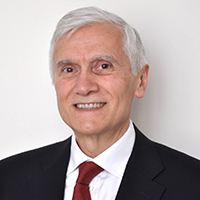
Giampaolo Merlini
Italy
Giampaolo Merlini
Giampaolo Merlini received his medical degree and specialized in Hematology and in Laboratory Medicine at the University of Pavia. He was trained by Prof. Jan Waldenström and Prof. Elliott Osserman in the study of monoclonal gammopathies and systemic amyloidosis. He founded and was the Director of the Center for Research and Treatment of Systemic Amyloidosis until 2016, University Hospital Policlinico San Matteo, he was President of the International Society of Amyloidosis from 2005 to 2010. He is full Professor of Clinical Biochemistry at the University of Pavia. He received several awards, including the 2017 Ham-Wasserman Lecture of the American Society of Hematology, the Robert Kyle Award from the International Workshop on Waldenström’s Macroglobulinemia in 2018, the Jan G. Waldenström Award from the International Myeloma Society in 2019, and the Giampaolo Merlini Award from the International Society of Amyloidosis in 2020.
Dr. Merlini’s research interests include the pathogenesis, natural history, diagnosis and treatment of monoclonal gammopathies, and in particular immunoglobulin light chain amyloidosis. His recent research focuses on investigating molecular mechanisms of cardiac damage, biomarkers for assessing prognosis and response to therapy, and developing novel therapeutic agents and treatments designed in light of advances in understanding these diseases’ molecular mechanisms. He is the principal investigator for several research projects in this field and published on different aspects of systemic amyloidosis from the basic mechanisms to biomarkers, new diagnostic approaches, risk definition and response criteria, and novel therapies.
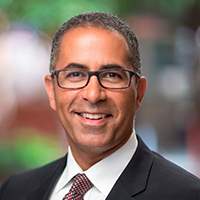
Joseph Mikhael
USA
Joseph Mikhael
Dr Mikhael is a Professor in the Applied Cancer Research and Drug Discovery Division at the Translational Genomics Research Institute (TGen), an affiliate of City of Hope Cancer Center. He is also the Chief Medical Officer of the International Myeloma Foundation (IMF) and Director of Myeloma research at the HonorHealth Research Institute. Dr Mikhael specializes clinically in plasma cell disorders, namely multiple myeloma, amyloidosis, and Waldenstrom’s macroglobulinemia. He is the PI of many clinical trials, primarily in relapsed multiple myeloma, and his other clinical research interests include pharmaco-economics, communication skills, and media relations. Dr. Mikhael also serves as the Treasurer on the executive of the American Society of Hematology.
Dr Mikhael has published over 150 peer-reviewed articles in these fields and lectures internationally on a regular basis. Dr. Mikhael is deeply committed to health disparities in myeloma and leads the diversity efforts of the IMF, namely the M-Power project in the African American community. He is also the chair of the Diversity, Equity and Inclusion Council at TGen. Dr. Mikhael is heavily involved in training future researchers and mentors junior faculty worldwide. He also spends nearly 20% of his time in the third world developing collaborations in myeloma and finding ways to enhance access to novel agents.
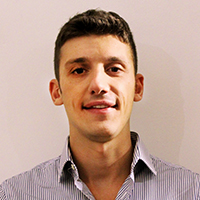
Roberto Mina
Italy
Roberto Mina
Roberto Mina is Assistant Professor of Hematology at the University of Torino, Azienda Ospedaliero-Universitaria Città della Salute e della Scienza di Torino, Italy. He studied medicine at the University of Torino and completed his residency in hematology at the same institution. He is involved in the design, development, and coordination of phase I, II, and III clinical trials for the treatment of multiple myeloma in collaboration with the European Myeloma Network (EMN).
Dr Mina’s main research focuses on the diagnosis and the clinical and experimental treatment of patients with multiple myeloma and associated disorders, particularly of transplant eligible and high-risk patients. His interests also include the use of new biological molecules and immunotherapeutic agents, CAR T-cell therapy. He is a member of EMN, EHA, and IMS. He is author and co-author of several publications in peer-reviewed journals.
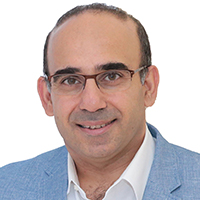
Mohamad Mohty
France
Mohamad Mohty
Mohamad Mohty is full Professor of Hematology and head of the Hematology and cellular therapy Department at the Saint-Antoine Hospital and Sorbonne University (Paris, France).
Professor Mohty obtained his medical degree from the University of Montpellier, France, and his PhD from the University of Marseille, France. He also undertook post-doctoral work at the Hematology Department, Imperial College, Hammersmith Hospital, London, UK.
Professor Mohty’s is also head of a translational research team (INSERM team N°7) at the Saint-Antoine Research centre in Paris and his research is focused on the pathophysiology and immunobiology of normal and pathological antigen-presenting cells, especially the impact of novel immunomodulatory agents such as proteasome inhibitors, IMiDs and hypomethylating agents.
He has a special clinical focus on the development of reduced-toxicity conditioning regimens, immunotherapy and different aspects of therapy of acute leukemia and multiple myeloma.
Professor Mohty is past-president of the European Society for Blood and Marrow Transplantation (EBMT), and the current chairman of the Acute Leukemia Working Party of EBMT. He is also the founder and chairman of the “International Academy for Clinical Hematology (IACH; http://clinical-hematology.org/). He serves on the board of the EBMT, and the “Intergroupe Francophone du Myelome” (IFM). He is a member of the American Society of Hematology (ASH), American Society for Clinical Oncology (ASCO), American Society for Blood and Marrow Transplantation, European Hematology Association (EHA), and EBMT.
Professor Mohty has published more than 600 peer-reviewed articles (https://www.ncbi.nlm.nih.gov/pubmed/?term=MOHTY+M) in the field of stem cell transplantation, leukemia and myeloma, in different hematology and immunology journals.
He also serves as Editor-in-Chief of the journals Bone Marrow Transplantation and Clinical Hematology International, as Associate Editor for Leukemia, European Journal of Haematology and Blood Cancer Journal, as member of the editorial board of Haematologica, and as a regular reviewer in different immunology, hematology, and cancer journals such as the New Engl. J Med, Blood, J Clin Oncol, The Lancet, Lancet Oncology, Lancet Haematology, Nature Reviews, etc.
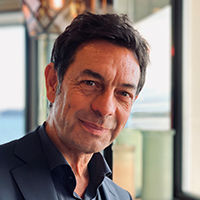
Philippe Moreau
France
Philippe Moreau
Philippe Moreau, MD, PhD, serves as Professor of Clinical Hematology at the University Hospital of Nantes at the Medical University of Nantes in France.
Professor Moreau is a member of the administration council of the Intergroupe Francophone du Myélome (IFM) which he chaired from 2006 through 2009. He is also a member of the International Myeloma Working Group (IMWF). Professor Moreau’s clinical interests are focused on multiple myeloma and its treatment with high-dose therapy and novel agents. He has served as the principal investigator of many international randomized phase 3 clinical trials and his research is widely published.
Professor Moreau has authored or coauthored more than 500 peer-reviewed articles that have appeared in high impact factor journals including the New England Journal of Medicine, Journal of Clinical Oncology, The Lancet Oncology, and Blood. He is a member of the editorial boards of the Journal of Clinical Oncology, Blood, and Blood Cancer Journal and is frequently invited to speak at international hematologic oncology meetings.
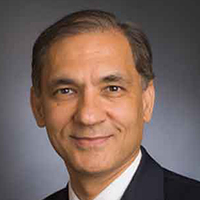
Nikhil Munshi
USA
Nikhil Munshi
Nikhil C. Munshi, MD, is the Kraft Family Chair and Professor of Medicine at Harvard Medical School, Boston, MA, USA, and the director of basic and correlative science, and associate director of the Jerome Lipper Myeloma Center at the Dana-Farber Cancer Institute, in Boston. He is also an attending physician at the Brigham and Women’s Hospital, Harvard Medical School. Professor Munshi studied medicine at the S.S.G. Hospital and M.S. University, in Baroda, India, before completing fellowships in oncology at the Johns Hopkins Oncology Center, Baltimore, MD, USA, and the Indiana University Medical Center, Indianapolis, IN, USA.
Dr. Munshi’s research focus spans both basic sciences to understand genomic changes in myeloma and elucidate molecular mechanisms driving the genomic instability in cancer, to translational approaches directed at improving diagnosis and prognosis as well as therapeutics. His current research activities are centered on integrative oncogenomics in myeloma and developing novel targeted therapeutics including novel antigen-directed and immune effector cell therapy/vaccine approaches.
Professor Munshi is president of the International Myeloma Society. He has received several prestigious awards and has published widely on multiple myeloma.
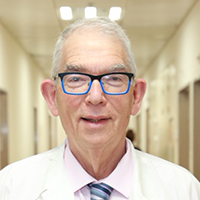
Arnon Nagler
Israel
Arnon Nagler
Professor Arnon Nagler, MD, MSc
Chaim Sheba Medical Center, Israel
- Director of the Division of Hematology, Chaim Sheba Medical Center, Israel
- Director of Bone Marrow transplantation and Cord Blood Bank, Chaim Sheba Medical Center, Israel
- Professor of Medicine at the Tel Aviv University, Tel Aviv, Israel
- One of the pioneers of the non-myeloablative and reduced intensity/toxicity allogeneic transplantations for both malignant and non-malignant disorders (Blood 1998)
- Established the first public cord blood bank and performed the first cord blood transplanataion in Israel
- Leader of the Alternative donor subcommittee of the ALWP of the EBMT from 2008-2010
- Leader of the RIC subcommittee of the ALWP of the EBMT – since 2010
- Serves on the Editorial Board of several BMT and Hematology Journals and is a Section Editor for Leukemia
- Chair of the Acute Leukemia Working Party (ALWP) of the EBMT
Dr Nagler received his medical training at the Hebrew University-Hadassah Medical School, Jerusalem, Israel; he then carried out a Postdoctoral research fellowship in hematology and bone marrow transplantation at “Stanford University Hospital” Palo Alto, CA, in the USA, from 1986 to 1990.
Dr Nagler serves on the Board of Directors of Netcord organization of cord blood banks and was the Netcord Threasurer from 2010-2013.
Dr Nagler has received several awards including the best scientific abstract award of the ASBMT/CIBMR Tandem meeting (2004) and the best clinical abstract award of the NMDP Council Meeting (2004). In addition, Dr Nagler is a popular speaker and has made numerous, invited, international presentations and many Oral presentations on almost annual basis in all international transplantation and hematology meetings – ASH,ASBMT/CIBMTR, EBMT, EHA, Exp Hematology (including a presentation at the presidential symposium) and invited presentation at the Gordon conference (Boston USA).
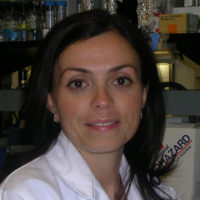
Paola Neri
Canada
Paola Neri
Dr. Paola Neri, MD, PhD is an Associate Professor of Medicine, attending physician in the Hematology division at University of Calgary and member of the Arnie Charbonneau Cancer Institute. Since January 2019 she is the Scientific Director of the Precision Oncology Hub, Translational Research Laboratory, at the Tom Baker Cancer Centre (TBCC) in Calgary.
Dr. Neri received her medical degree at Magna Græcia University, Catanzaro, Italy in 2000. She completed her specialty in Medical Oncology at Magna Græcia University, Catanzaro, Italy in 2005 and received a PhD in Molecular Oncology and Experimental Immunology in 2011. From 2003-2006 she was Research Associate at Dana-Farber Cancer Institute, Harvard Medical School, Boston, USA under the mentorship of Dr. Kenneth Anderson. In June 2008, she joined the University of Calgary.
The main focus of her research is the study of multiple myeloma (MM) with a particular interest in drug development and genomic studies with the goal of discovering novel therapeutic targets for this incurable disease. As such she has investigated the genome signature associated with MM cell response or resistance to anti-MM agents to identify druggable therapeutic targets in MM and new biomarkers of response to novel agents.
Dr. Neri is well published in the field and received national and international grants from several agencies including International Myeloma Society, Leukemia and Lymphoma Society, Multiple Myeloma Research Foundation and Canadian Institute of Health Research (CIHR). In 2021 she was selected by the International Myeloma Society to receive the Ken Anderson Young Investigator Award for her significant translational work in multiple myeloma.
She is currently member of the American Society of Hematology and the scientific board of Myeloma Canada, very active both in preclinical and clinical trial research in Myeloma.
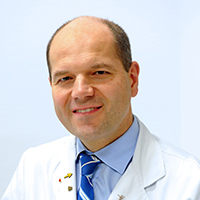
Enrique Ocio
Spain
Enrique Ocio
Dr. Enrique M. Ocio, MD, PhD, is the Head of the Hematology Department of the University Hospital “Marqués de Valdecilla” and is the responsible for the Hematology Research group at the IDIVAL Biomedical Research Institute in Santander (Cantabria-Spain). He is also Associate Professor of Medicine in the University of Cantabria.
He graduated in Medicine in the University of Salamanca and completed his residency in Haematology and obtained the PhD in the University Hospital of Salamanca. For more than 20 years, he combined his tasks as a physician in Salamanca, coordinating the Clinical Trials Unit of the department and the Phase I Trials Unit of the hospital, with his research work in the Cancer Research Center of the University of Salamanca as the responsible of the New Drugs Development Unit in Hematologic Malignancies. He has published over 140 original papers in international journals, with an H index of 50 (Scopus 2023).
His main areas of interest are the study of the biology of multiple myeloma and other haematological malignancies such as acute myeloid leukemia or B lymphoproliferative disorders; and the development of novel antitumoral drugs from the preclinical setting to early phases clinical trials. Among these he has focused on the study of the activity and mechanism of action and resistance of several drugs such as proteasome inhibitors, IMIDs or deacetylase inhibitors, and the study of the immune system and evaluation of novel immunotherapeutic strategies.
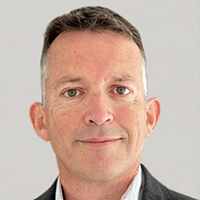
Michael O’Dwyer
Ireland
Michael O’Dwyer
Michael O’Dwyer is a graduate of University of Galway. Following initial training in Ireland he completed a Hematology and Oncology Fellowship at Oregon Health Sciences University, Portland Oregon. Since 2006 he has been Professor of Hematology at University of Galway, Ireland. His research interests include the immune microenvironment, understanding the role of glycosylation in disease progression in Multiple Myeloma and development of new NK cell based immune approaches.
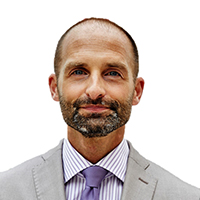
Bruno Paiva
Spain
Bruno Paiva
Dr Bruno Paiva, PharmD, PhD, is a research fellow of the Department of Hematology at the Clinica and CIMA Universidad de Navarra, Pamplona, Spain. He is the Director of the Flow Cytometry Core of Co-Director of the Myeloma Research Laboratory.
Dr Paiva’s main area of expertise is the multidimensional flow cytometry analysis of hematological malignancies. His research focuses on immunogenomics to improve differential diagnosis, risk stratification, and monitoring of patients with monoclonal gammopathies and myeloid malignancies. He is an author or co-author of hundreds of publications in peer-reviewed journals, and has been recognized with numerous awards.
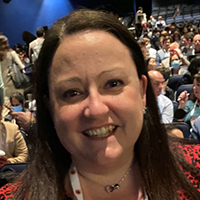
Charlotte Pawlyn
UK
Charlotte Pawlyn
Charlotte Pawlyn is a CRUK Clinician Scientist at The Institute of Cancer Research and a Haematology Consultant at The Royal Marsden Hospital NHS Foundation Trust. Charlotte leads the Myeloma Biology and Therapeutics Team at The Institute of Cancer Research which focusses on identifying therapeutic targets to improve outcomes for patients with immunomodulatory drug resistant and high-risk myeloma. In addition to her laboratory studies Charlotte is actively involved in the Trial Management Groups of several clinical trials as part of the UK Myeloma Research Alliance including the large national frontline studies, Myeloma XI and Myeloma XIV.
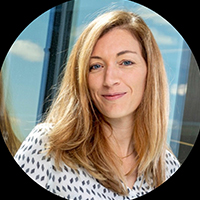
Aurore Perrot
France
Aurore Perrot
Aurore Perrot is Professor of Hematology and is working in Toulouse in France. She is specialized in multiple myeloma field and member of the executive board of the Intergroupe Francophone du Myélome IFM. She is particularly involved in transplant-eligible newly diagnosed myeloma clinical trials and in real-world evidence studies.
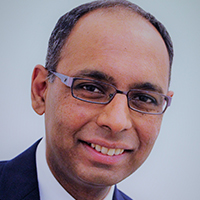
Rakesh Popat
UK
Rakesh Popat
Dr Rakesh Popat is an Associate Professor at University College London and Consultant Haematologist at University College London Hospitals with an interest in multiple myeloma.
He graduated from Guy’s and St. Thomas’ Medical School in London and trained in haematology at St. Bartholomew’s and the Royal London Hospitals. During this time he completed a PhD in novel treatments for myeloma and was awarded a fellowship to attend the Dana Farber Cancer Institute, Boston USA as part of this.
He has particular experience with novel treatments including immunotherapies such as CAR-T cell therapy and new antibody approaches. At University College Hospital, he leads the myeloma clinical trials programme and is the Cancer lead at the NIHR UCLH Clinical Research Facility. Regionally, he is the NIHR North Thames Clinical Research Network Haematolo-Oncology Lead.
Dr Popat is the Chair of the UK Myeloma Research Alliance, NCRI Myeloma working group, is on the executive board of the UK Myeloma Forum, and the young board of the European Myeloma Network. He is the Chief Investigator for a number of relapsed myeloma studies and the Principal Investigator for the NIHR Health Informatics Collaborative Myeloma Theme.
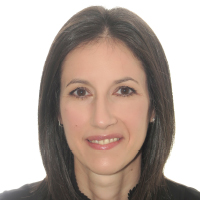
Noemi Puig
Spain
Noemi Puig
Noemi Puig, MD, PhD earned her medical degree from the Universidad Complutense in Madrid and she completed her residency in Internal Medicine and Hematology at the University Hospital La Fe in Valencia, Spain. She completed a 3-year fellowship in Lymphoma, Myeloma and Autologous Stem Cell Transplantation at the Princess Margaret Hospital in the University of Toronto, in Toronto, Canada. She earned a doctoral degree at the Medicine Department of the University of Salamanca, in Spain, with a thesis entitled “Optimization and Critical Analysis of Minimal Residual Disease Monitoring with ASO RQ-PCR in Patients with Multiple Myeloma and Comparison with Multiparameter Flow Cytometry”. Dr. Puig currently serves as a Consultant Physician at the Hematology Department in the University Hospital of Salamanca. She also works in the Flow Cytometry Laboratory of the University Hospital of Salamanca, where she is responsible for the studies developed by the Spanish Myeloma Group.
Dr. Puig is a member of the Programa para el Estudio de la Terapéutica en Hemopatías Malignas (PETHEMA) and the Spanish Myeloma Group (GEM) as well as of the EuroFlow Group.
Dr. Puig´s main research interests include the role of multiparameter flow cytometry and of mass spectrometry in diagnosis, risk stratification and minimal residual disease monitoring in patients with monoclonal gammopathies. She is an author or co-author in several research articles, reviews and book chapters.
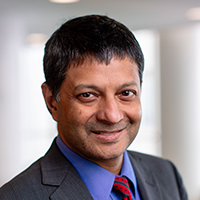
Vincent Rajkumar
USA
Vincent Rajkumar
Vincent Rajkumar, M.D., is the Editor in Chief of Blood Cancer Journal, and the Edward W. and Betty Knight Scripps Professor of Medicine, Mayo Clinic, Rochester, Minnesota. He is co-chair of the International Myeloma Working Group (IMWG), and Chair of the Eastern Cooperative Oncology Group (ECOG) myeloma committee. Dr. Rajkumar has received several awards including the Giants of Cancer Care Award (2019) from OncLive, and has over 700 publications, including over 400 peer-reviewed original research papers, and over 200 reviews and book chapters.
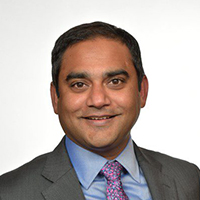
Karthik Ramasamy
UK
Karthik Ramasamy
Karthik Ramasamy is a Consultant Haematologist at Oxford University Hospitals NHS Trust and Associate Professor of Haematology, Radcliffe Department of Medicine. Dr Ramasamy is the Director of the Oxford Myeloma Translational Research Centre and a Lead Clinician for myeloma and other plasma cell dyscrasias at the Thames Valley Cancer Alliance Group. He is the Divisional Lead for Cancer Research for National Institute for Health Research, Clinical Research Network Thames Valley and South Midlands. Since 2021, Karthik chairs the NIHR Haem Onc and Lymphoma oversight group. He is an Executive member of the UK Myeloma Forum and is an active member of UK Myeloma Research Alliance.
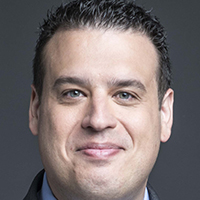
Joshua Richter
USA
Joshua Richter
Joshua Richter, MD, is an Associate Professor of Medicine, Haematology and Oncology in the Myeloma Division at the Tisch Cancer Institute at the Icahn School of Medicine at Mount Sinai and the Director of Myeloma at the Blavatnik Family Chelsea Medical Center at Mount Sinai. He completed undergraduate work at Johns Hopkins University and subsequently went on to medical school at New York Medical College, where he completed residency at St. Vincent’s Hospital. Dr Richter completed his haematology/oncology fellowship at the Yale Cancer Center. After completing his fellowship, he worked in the myeloma division at the John Theurer Cancer Center at Hackensack University Medical Center. In 2018 he joined the Myeloma Division at Mount Sinai Hospital. Dr Richter has been published in numerous oncology journals, including The New England Journal of Medicine, Blood and the Journal of Clinical Oncology. He has an interest in immunotherapy, multi-functional antibodies and precision medicine.
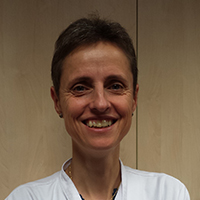
Laura Rosiñol
Spain
Laura Rosiñol
Dr. Laura Rosiñol graduated in Medicine from the University of Barcelona in 1996. She completed her training as a specialist in Hematology and Hemotherapy at the Hospital Clínic de Barcelona and obtained a doctorate from the University of Barcelona for her work in genetics molecular in smoldering myeloma. She has been part of the Hematology Service of the Hospital Clínic since 2006 and is currently the Head of the Myeloma and Amyloidosis Unit. Her professional career has focused on the clinical research of monoclonal gammopathies. She is a member of the PETHEMA-GEM group, participating in the design and analysis of numerous multiple myeloma clinical trials. Finally, she is a member of the International Myeloma Foundation.
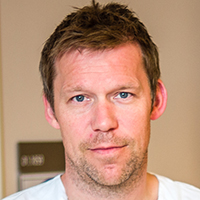
Fredrik Schjesvold
Norway
Fredrik Schjesvold
Fredrik Schjesvold is the founder and Head of Oslo Myeloma Center, in Oslo, Norway. He is head of the Norwegian myeloma association, President of the Nordic Myeloma Study Group and a board member of the European Myeloma Network. He is principal investigator for 4 academic studies and national investigator of 59 clinical trials in multiple myeloma, in addition to being site investigator in 11 more. He is a co-author of European (ESMO) and global (IMWG) guidelines, as well as lead author of the Norwegian myeloma guidelines. He is peer reviewer of several international journals, and co-editor of the journal Hemato, and Clinical Lymphoma, Myeloma and Leukemia. He is an international expert on myeloma and has given talks in Europe, America, and Asia.
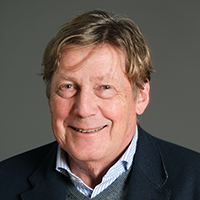
Pieter Sonneveld
The Netherlands
Pieter Sonneveld
Pieter Sonneveld received his medical degree from the Erasmus University in Rotterdam, The Netherlands in 1977. In 1980 he completed a Ph.D. thesis on the pharmacology of Adriamycin at the University of Leiden (DW van Bekkum & HM Pinedo, promotores). He received a Fogarty Fellowship and worked at the National Cancer Institute, Bethesda, USA.
Dr. Sonneveld is Professor of Hematology at the Erasmus MC and Erasmus University Rotterdam and Chair of the Erasmus MC Cancer Institute in Rotterdam. From 2011 to 2017 he has been the head of the department of Hematology. His research focus is on clinical and translational aspects of multiple myeloma. His myeloma research group in Erasmus MC has been very active in molecular diagnostics and micro-environment of myeloma.
He is vice-chairman of the HOVON Myeloma Working Group and coordinates HOVON and EMN clinical trials. Dr. Sonneveld is one of the founders of the European Myeloma Network and has been chairman since. Within EMN, he coordinates a cooperative network for independent clinical trials in Europe. EMN currently runs international trials and registration trials for novel treatments in myeloma.
He has been Treasurer and President (2017-2019) of the European Hematology Association EHA, and chair of its Scientific Working Group Committee. He has chaired the Scientific Program Committee of the 19th EHA congress in Milan 2014 and of the EMN Myeloma meetings in 2018 and 2021.
He serves on the Scientific Advisory Boards of the International Myeloma Society, the International Myeloma Foundation and the Multiple Myeloma Research Foundation and is a member of the International Myeloma Working Group. Dr Sonneveld has been a member of many Editorial Boards and has authored more than 600 peer reviewed scientific publications and book chapters. He has received numerous grants for his research.
In 2015 he was awarded the international Robert Kyle Award in Multiple Myeloma. In 2019 he received the Hubertus Wald Award for Cancer Research from Germany and in 2022 he received the International Waldenstrom Lifetime Achievement Award by the International Myeloma Society.
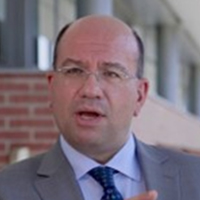
Evangelos Terpos
Greece
Evangelos Terpos
Dr Terpos main research interest is the biology and management of bone disease in multiple myeloma. He also studies the role of modern imaging (MRI, PET/CT) and of MRD in plasma cell neoplasms. In the clinical research era, Dr Terpos participates in many important clinical trials and is the PI of several studies with novel agents in the field of myeloma.
His research work was reported in more than 660 papers in peer-reviewed journals and Dr Terpos has more 31,000 citations and an h-index of 83 in ISI/Web of Knowledge and more than 45,000 citations and an h-index of 101 in Google Scholar.
Dr Terpos is co-chairing the Bone Sub-Committee of the International Myeloma Working Group and is a member of the Guideline Subgroup of the European Myeloma Network. Dr Terpos is also a member of the Education and Publication Committees of the International Myeloma Society, and he is the vice-president of the Greek Myeloma Study Group.
He has given lectures at ASH, ASCO & EHA meetings, International Myeloma Workshops and in several national meetings. He is Associate Editor of HemaSphere (official journal of EHA) and member of the Editorial Board of Blood Cancer Journal, American Journal of Hematology and Haematologica .

Cyrille Touzeau
France
Cyrille Touzeau
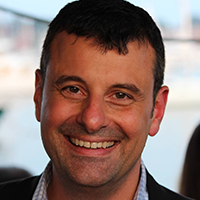
Steven Treon
USA
Steven Treon
Dr. Treon is the Director of the Bing Center for Waldenstrom’s Macroglobulinemia at Dana-Farber Cancer Institute (DFCI), and a Professor of Medicine at Harvard Medical School. Dr. Treon earned a BA (Biology), MS (Biochemistry), PhD (Cancer Immunology), and MD with honors from Boston University, and MA from Harvard Medical School. He completed an Internal Medicine residency at Boston University Medical Center, Hematology/Medical Oncology Fellowship at Massachusetts General Hospital, and post-doctoral training at DFCI.
In 1999, Dr. Treon initiated a WM clinic at DFCI which has cared for thousands of patients with WM. Using whole-genome sequencing, Dr. Treon’s laboratory first identified highly recurring activating mutations in MYD88 and CXCR4 in WM patients and was the first to report that Bruton’s tyrosine kinase (BTK) was a downstream target of the MYD88 mutation, resulting in a study leading to the first-ever approval of a drug (ibrutinib) for WM. Dr. Treon has also made contributions to the investigation and advancement of many novel agents for the treatment of WM. He organized the WM Clinical Trials Group, which included investigators in the U.S., Canada, and Europe, and served as the principal investigator for many prospective clinical trials which examined novel agents and combinations in WM patients including the monoclonal antibodies rituximab and alemtuzumab; the nucleoside analogue fludarabine with rituximab; the immunomodulatory agents thalidomide, lenalidomide, and pomalidomide with rituximab; the MTOR inhibitor everolimus; the proteasome inhibitors bortezomib and carfilzomib alone and with rituximab; the BTK inhibitor ibrutinib; the CXCR4 antagonists ulocuplomab and mavorixafor in combination with ibrutinib; and the BCL-2 inhibitor venetoclax (co-investigator). These studies enabled inclusion of many new agents into national and international treatment guidelines.
Dr. Treon has published extensively on topics in WM and related disorders, with over 400 peer-reviewed original reports, reviews, editorials, and chapters in high-impact journals and textbooks. He has been the principal organizer of the biennial International Workshops on WM since 2000, and the International Patient and Physician Summits since 2003. In recognition of his scientific work in WM, Dr. Treon has received numerous honors and awards including the International Waldenstrom’s Macroglobulinemia Foundation Achievement Award, the Robert A. Kyle Award for Contributions to Waldenstrom’s Macroglobulinemia, “Top Doctors” Best of Boston Award in Medical Oncology, the Laurie Strauss Leukemia Foundation Outstanding Cancer Researcher Award, the Jan Gosta Waldenstrom Award for Lifetime Contributions to WM, “Top Doctors” in the U.S. for Medical Oncology by U.S. News and World Report, Best of ASH Recognitions for Most Impactful Abstract Presented at the Annual Meeting of the American Society for Hematology, Massachusetts General Hospital 100 Award for Top Cancer Advancements, Bruce Waterfall Memorial Lecture Award, Discovery Award for Impactful Work in Medical Oncology, Dana Farber Cancer Institute, and a Distinguished Alumnus Award from the Graduate School of Boston University Medical School. In 2017, Dr. Treon was elected a Fellow to the American College of Physician, and a Fellow to the Royal College of Physicians, London UK.
ear“Best of the American Society of Hematology” designations at Annual Meetings of the American Society of Hematology. In 2017, Dr. Treon was elected as a fellow to the Royal College of Physicians in London, and in 2018, as a fellow to the American College of Physicians.
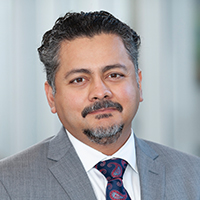
Saad Usmani
USA
Saad Usmani
Dr. Saad Zafar Usmani received his medical education at Allama Iqbal Medical College in Lahore, Pakistan. He completed a residency in internal medicine at Sinai-Grace Hospital/Wayne State University in Detroit, Michigan and a fellowship in hematology and oncology at the University of Connecticut Health Center in Farmington, Connecticut. He then joined the Myeloma Institute for Research & Therapy, University of Arkansas for Medical Sciences in Little Rock, AR in 2010 as the Director of Developmental Therapeutics and Assistant Professor of Medicine. He was recruited to the Levine Cancer Institute/Atrium Health in 2013 as the inaugural Division Chief of Plasma Cell Disorders and Director of Clinical Research for Hematologic Malignancies where he built an internationally renowned myeloma program. He now serves as the Chief of Myeloma Service at MSKCC.
Dr. Usmani is board certified in internal medicine, medical oncology, and hematology, and he is a Fellow of the American College of Physicians. He holds membership and leadership roles on national/international committees, including the International Myeloma Working Group, the ALLIANCE Myeloma Committee (Chair), the American Society of Hematology (ASH), the American Society of Clinical Oncology (ASCO), the American Society of Transplant & Cellular Therapy, and the National Cancer Institute Myeloma Steering Committee. Dr. Usmani has served as the Vice-Chair of the SWOG Myeloma Committee, and has served as chair for the ASH Scientific Committee on Plasma Cell Neoplasia, and the ASCO Scientific Committee on Plasma Cell Disorders. He has received several international awards recognizing his clinical and translational research contributions to the field, including the Celgene Young Investigator Award for Clinical Research, COMY Award for Excellence in Myeloma Research, LLS Scholar in Clinical Research, the International Myeloma Society Bart Barlogie Award for Clinical and Translational Research, and the LLS CDP Achievement Award. Dr. Usmani has authored/co-authored more than 230 peer-reviewed research manuscripts and over 300 abstracts at national and international meetings. Active in clinical and translational research, Dr. Usmani has research interests focus on plasma cell disorders—in particular, high-risk multiple myeloma.
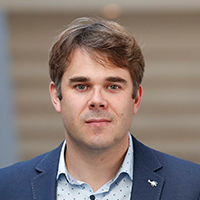
Niels van de Donk
Netherlands
Niels van de Donk
Niels van de Donk, MD, PhD is working as a hematologist in Amsterdam University Medical Center, where he was appointed as full professor in February 2020. He specialized in hematology at the University Medical Center Utrecht. Following a fellowship at the Jerome Lipper Multiple Myeloma Center, Dana-Farber Cancer Institute in Boston, he assumed his current post in Amsterdam.
Niels van de Donk’s special interest is the treatment of patients with multiple myeloma. He is the principal investigator of several investigator-initiated studies. Furthermore, he is involved in translational research towards finding new targets for therapy with a focus on immune therapy. He is author or co-author of a number of books and many papers published in peer-reviewed journals. He is also secretary of the HOVON multiple myeloma working party and scientific secretary of the European Myeloma Network. He is serving on the EHA Scientific Program Committee since 2018.
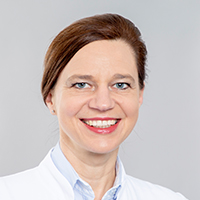
Katja Weisel
Germany
Katja Weisel
Katja Weisel, MD (Hamburg, Germany)
Deputy director and associate professor Oncology, Hematology and BMT, deputy director of the University Cancer Center Hamburg, University Medical Center Hamburg-Eppendorf, Hamburg, Germany
- Dr Weisel is head of the myeloma program
- Her myeloma research interests focus on treatment optimization for high-risk myeloma, renally impaired myeloma patients, refractory myeloma patients, and radiographic methods to monitor myeloma disease
- Dr Weisel is a member of the steering committee of the German-Speaking Multiple Myeloma Group (GMMG) where she is lead investigator of three GMMG trials
- She has participated in more than 100 publications on multiple myeloma treatment and biology
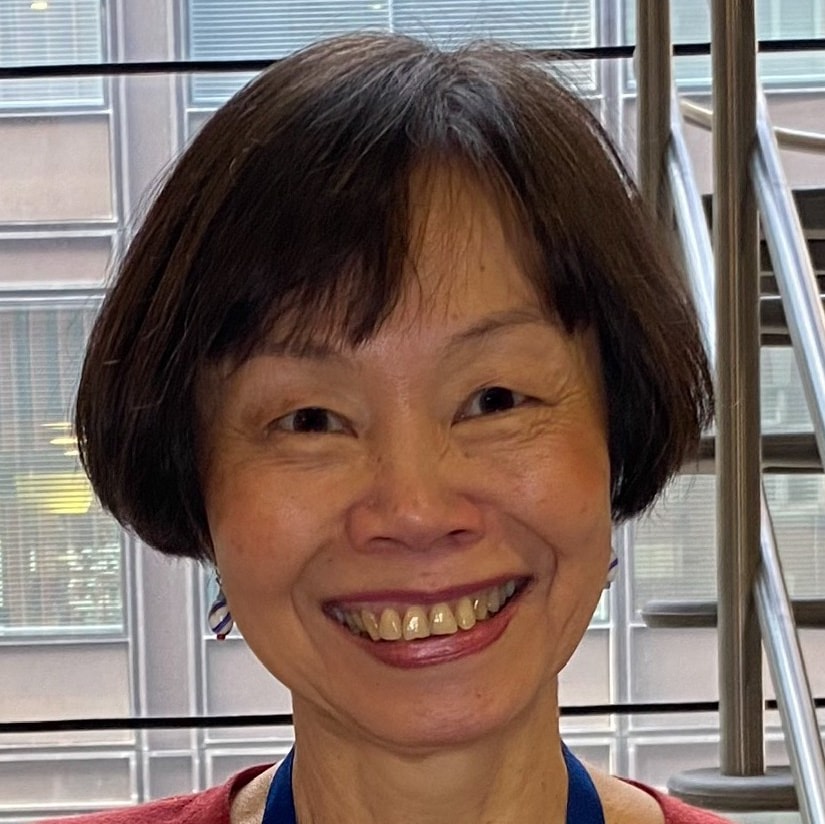
Kwee Yong
UK
Kwee Yong
Kwee Yong is Professor of Haematology at University College London. She was educated at Oxford and University College London. She completed her PhD in haemopoietic growth factors, and returned to UCL as Senior Lecturer in 1999. She leads the multiple myeloma programme at UCL. She is an executive member of the UK Myeloma Research Alliance, a member of the National Cancer Research Institute Haematology-Oncology Clinical Studies Group, and past chair of the UK Myeloma Forum Executive committee. She is CI on several National Cancer Research Network trials in myeloma, employing novel risk stratified strategies, and immunotherapy. Professor Yong runs a laboratory programme working on aspects of myeloma biology, immune environment and translational strategies including CAR-T therapies. A particular focus is the contribution of immune dysfunction to clinical outcomes including progression from precursor disease. The programme receives funding from the Medical Research Council, Cancer Research UK and Blood Cancer UK. Professor Yong has published over 150 original papers in peer-reviewed journals, and is a reviewer for international journals and grant-awarding bodies.
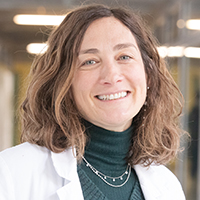
Elena Zamagni
Italy
Elena Zamagni
Elena Zamagni MD, PHD, is Associate Professor of Hematology at the Bologna University, Italy. She received her medical degree from University of Bologna, where she also served her residency in haematology. She got PHD in Clinical Hematology at the University of Bologna in May 2005.
Her research interests include areas related to multiple myeloma, in particular on the role of high dose therapy with stem cell support, of prognostic factors, minimal residual disease and of imaging techniques.
She has published over 150 papers in peer-reviewed journals, mainly in the field of plasma cell dyscrasia. She has contributed to the educational session of the Italian Society of Haematology (SIE) and American Society of Clinical Oncology (ASCO). She is abstracts reviewer for SIE, EHA and ASH. She is part of the editorial board of several haematological journals. She is an active member of the board of the GIMEMA and European Myeloma Network (EMN) working party and she has cooperated in the Scientific secretary and as principal investigator in several national randomized trials in multiple myeloma. She is a member of the Italian Society of Haematology, of the International Myeloma Working Group and of the International Myeloma Society. She is serving on the EHA’s Scientific Program Committee since 2017. She is responsible for the career development committee within the International Myeloma Society since 2019.
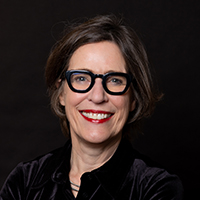
Sonja Zweegman
Netherlands
Sonja Zweegman
Her clinical research is focused on the improvement of the treatment of patients with Multiple Myeloma. She is the principal investigator of several (inter)national clinical trials in the elderly aiming at personalized treatment based on the level of frailty. In order to reach that goal, she investigates whether functional geriatric assessments and biological markers of frailty, such as senescence and sarcopenia, are better predictors for the feasibility of therapy. Furthermore, she co-leads the myeloma translational research group, which is embedded within the Department of Hematology, in order to integrate scientific research with care. The research is dedicated to improve immune therapy of Multiple Myeloma. Firstly, by investigating the mechanism of action of immune therapy, being exemplified by revealing the long term immune-regulatory effects of anti-CD38 monoclonal antibodies, and the biological background of immune therapy resistance. Secondly, by developing novel treatment strategies, such as dual CAR-T cell therapy. She is a co-author of more than 200 peer-reviewed papers and several book chapters.
